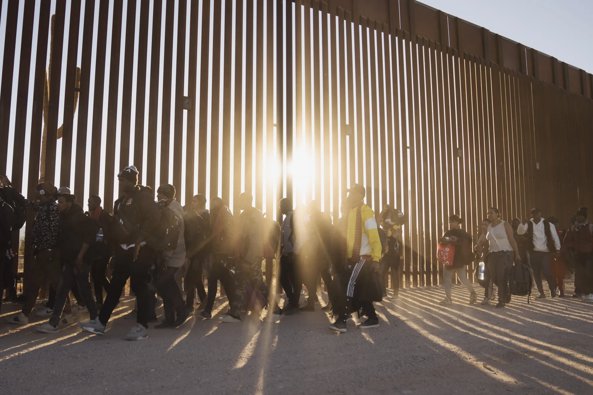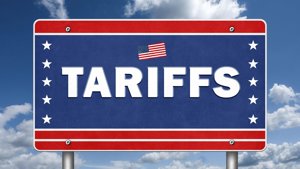
Trump Ends Legal Status for 500,000 Migrants
The Trump administration has announced it will revoke the legal status of more than 500,000 migrants from Cuba, Haiti, Nicaragua, and Venezuela who entered the United States under a Biden-era humanitarian parole program, urging them to self-deport or face arrest and removal.
The program, officially known as CHNV (Cuba, Haiti, Nicaragua, Venezuela), was introduced by the Biden administration to reduce illegal border crossings by offering legal pathways for migrants. Under CHNV, a total of 532,000 migrants flew to the U.S. with government permission. However, the policy was paused after President Trump took office, and its termination is set to take effect in late April — 30 days after the official March 25 notice.
In a formal notice, the Department of Homeland Security (DHS) confirmed that affected migrants would lose work permits and deportation protections granted under parole. Officials warned that those who do not depart the U.S. within the 30-day grace period will be subject to arrest and deportation. The DHS is encouraging voluntary departures via the CBP Home mobile application, repurposed for self-deportation registrations.
“The termination of the CHNV parole programs, and the termination of parole for those who exploited it, is a return to common-sense policies, a return to public safety, and a return to America First,” said DHS spokeswoman Tricia McLaughlin. She added that migrants allowed entry through the program were “loosely vetted,” and claimed the policy undercut American workers.
DHS also noted that it retains the authority to arrest migrants who arrived under CHNV even before the 30-day period ends — especially those who have failed to apply for alternative legal statuses such as asylum or a green card. Pending immigration benefit applications filed by CHNV participants have already been suspended, citing vetting concerns and potential fraud.
The CHNV initiative was previously praised by the Biden administration as a successful method to reduce unlawful entries at the southern border. However, critics, including Republicans, argued the program bypassed congressional limits on immigration and lacked stringent oversight. Some instances of fraud were reported under the policy.
Last fall, the Biden administration had already declined to renew two-year work permits under CHNV, suggesting migrants apply for other immigration benefits like Temporary Protected Status (TPS). That opportunity has now been drastically reduced under Trump’s renewed enforcement agenda.
Trump's administration has also announced plans to phase out TPS protections for Haitians and Venezuelans — another shift away from humanitarian-based immigration policies. These developments mark a significant realignment of U.S. immigration priorities, focused on stricter border control and the rollback of programs that permit temporary legal status.
As the late-April deadline approaches, hundreds of thousands of migrants face uncertain futures and difficult choices. Advocacy groups have raised concerns about potential mass deportations, while federal agencies prepare for increased enforcement activity.






